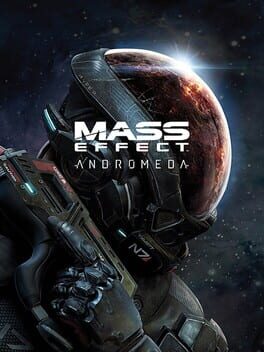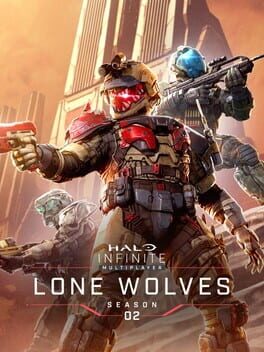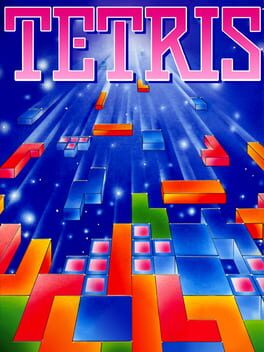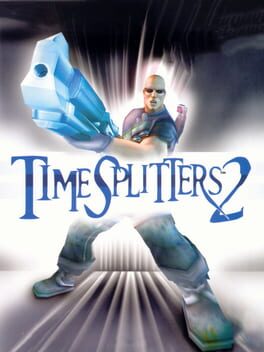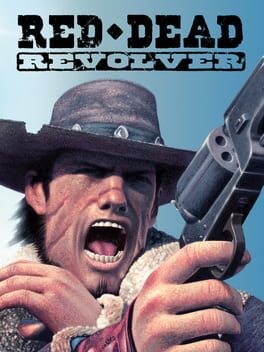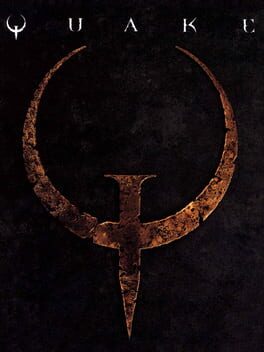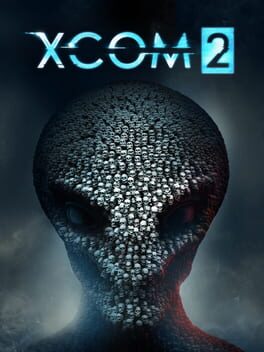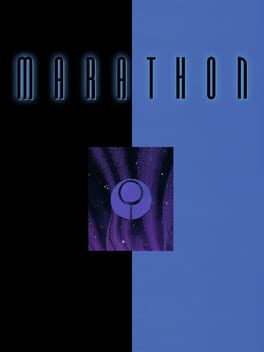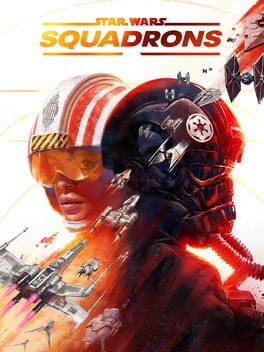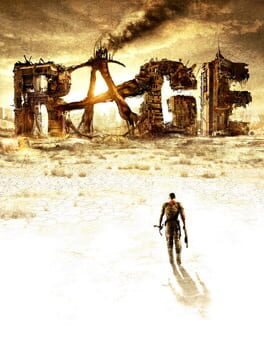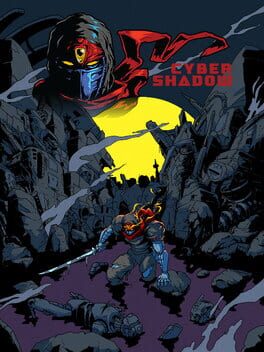HaroKid
On the surface, it seems as though a lot of time was put into Andromeda's various systems on an individual level, but very little effort is present in the way of making them flow into one another to create something resembling a fun gameplay loop worth spending time in.
The graphical fidelity and audio design is a welcome leap from the trilogy, but lack of interesting presentation or varied combat squanders any goodwill they might instill. Combat is more open ended and expressive on paper, but the chunky nature of navigating menus, managing your loadout, basic AI, and over-long animations prevent it from being as liberating as it ought to be.
Dialogue and performances from the supporting cast are mostly fine, but just about everything that comes out of Ryder's mouth happens at unnatural pacing and feels bizarrely divorced from anything resembling a real conversation. More unforgivable is the lack of any intrigue or memorable characters, with just about every story element being a discounted echo of something from the original trilogy, and even spilling over into feeling like a generic Destiny/Halo type story at times.
Underneath all of Andromeda's flaws, something resembling a good game is almost there, but it's buried under 20 tons of fat and loading screens. One could almost take a look at the horrendously bloated open world hubs filled with repetitive encounters and barebones production value in the story department, and wonder: Why was Mass Effect Andromeda's blank slate stepping-stone for the franchise developed by the team behind Mass Effect 3's multiplayer component not EA's attempt at a Destiny-clone, instead of the ill-fated Anthem?
I'm sympathetic towards many of the game's shortcomings and development issues under EA - But a lot of the problems here seem self-inflicted. At the end of the day, had Mass Effect Andromeda landed every shot it took, it would still be a poster-child for tired and overly long open world bloat that just about every other AAA game at the time was afflicted with. No one aspect of it is so offensively bad it tanks the experience as a whole; It's all just so mind-numbingly boring.
The graphical fidelity and audio design is a welcome leap from the trilogy, but lack of interesting presentation or varied combat squanders any goodwill they might instill. Combat is more open ended and expressive on paper, but the chunky nature of navigating menus, managing your loadout, basic AI, and over-long animations prevent it from being as liberating as it ought to be.
Dialogue and performances from the supporting cast are mostly fine, but just about everything that comes out of Ryder's mouth happens at unnatural pacing and feels bizarrely divorced from anything resembling a real conversation. More unforgivable is the lack of any intrigue or memorable characters, with just about every story element being a discounted echo of something from the original trilogy, and even spilling over into feeling like a generic Destiny/Halo type story at times.
Underneath all of Andromeda's flaws, something resembling a good game is almost there, but it's buried under 20 tons of fat and loading screens. One could almost take a look at the horrendously bloated open world hubs filled with repetitive encounters and barebones production value in the story department, and wonder: Why was Mass Effect Andromeda's blank slate stepping-stone for the franchise developed by the team behind Mass Effect 3's multiplayer component not EA's attempt at a Destiny-clone, instead of the ill-fated Anthem?
I'm sympathetic towards many of the game's shortcomings and development issues under EA - But a lot of the problems here seem self-inflicted. At the end of the day, had Mass Effect Andromeda landed every shot it took, it would still be a poster-child for tired and overly long open world bloat that just about every other AAA game at the time was afflicted with. No one aspect of it is so offensively bad it tanks the experience as a whole; It's all just so mind-numbingly boring.
2021
1997
An RPG with an excellent sense of vision. Combat holds up alright so long as you can stomach XCOM style hit probabilities. The open-ended structure of the game is very enticing, but maybe a bit too extreme for its own good; While accidentally skipping over large portions of the game or completing tasks "out of order" feels rewarding in its own way, the lack of any useful quest journal or in-game tutorials and tool-tips for how to do anything makes owning the manual or using an online guide a necessity in the modern day.
1989
2002
First Halo, Now This?
The Goldeneye-esque control might be a turn off for some in 2020, but adjusting is fairly easy and the game's auto-aim is forgiving enough to make the control negligable.
What does make TimeSplitters 2 more difficult to enjoy in a 2020 replay is the lackluster mission design after the third or so level - The game goes from dense and complex in the opening stages to uninteresting, unintuitive, and uninvolved throughout the rest of the bunch.
TimeSplitters 2 does get points for having a dense amount of content by any standard with different challenge modes and bot-enabled multiplayer - TimeSplitters 2 definitely scores some for having custom bind-able controls in 2002; Something modern shooters seem afraid, or just don't care to offer.
The Goldeneye-esque control might be a turn off for some in 2020, but adjusting is fairly easy and the game's auto-aim is forgiving enough to make the control negligable.
What does make TimeSplitters 2 more difficult to enjoy in a 2020 replay is the lackluster mission design after the third or so level - The game goes from dense and complex in the opening stages to uninteresting, unintuitive, and uninvolved throughout the rest of the bunch.
TimeSplitters 2 does get points for having a dense amount of content by any standard with different challenge modes and bot-enabled multiplayer - TimeSplitters 2 definitely scores some for having custom bind-able controls in 2002; Something modern shooters seem afraid, or just don't care to offer.
2004
1996
Quake is often cited as an atmospheric, break-neck speed shooter; Having not played it until now, I believe both descriptors have historically been far overstated.
The Trent Reznor score is of a high quality, but does little to keep the player engrossed in whatever strange mish-mash of an aesthetic Quake seems to be going for - Throughout the 4 supposedly distinct, yet equally brown realms, you start to crave for something more... Energetic. Not just in the music, but the enemies and weapons themselves.
The world of Quake is far more aggressively dangerous than that of Doom, and it feels as though there has been a sort of regression to more bullet sponge-type enemies, and guns that are strictly worse-feeling than their Doom counterparts. The result is something that, unexpectedly, plays more defensively and cautiously than Doom - Lowering the difficulty isn't much of a solution to this issue as it makes everything feel trivialized. There just isn't a sweet-spot for Quake's combat loop to really click.
Grindy combat, dour visuals, underwhelming sound design, and a soundtrack that loses its luster by the second episode culminate in a game that, while technically impressive, feels like a chore to play.
Map design mostly feels like an improvement over Doom, or at least, it feels a lot more streamlined - Levels do feel brief, and easy to navigate in a good way, so much so that the game hasn't bothered including an automap. This is a shame, because while most of the time you won't ever need one, the times where it would be appreciated feel so much worse without it.
While the intro level to each episode is quite enjoyable, The overall quality of Quake's level design varies greatly between each of the individual episodes - 1 Is a solid foundation that 2 immediately underwhelms. 3 is the peak of the entire game, and 4 finishes the game with a mediocre whimper.
Perhaps my understanding of what Lovecraft really is is wrong, but very little about the environments screamed Lovecraftian to me, and maybe only about half of the entire enemy roster felt appropriate. Quake had gone through a tumultuous development cycle of varying ideas, and it really shows. Each realm is a unique flavor! Except, not really. Quake is Lovecraftian Sci-Fi! With maybe some Norse mythology thrown in there? And some other things that kind of just feel like Doom.
The lack of set-piece bosses after the first episode is a sore disappointment, an issue further exacerbated when the game's final moments return with another eldritch big bad in the most anticlimactic way.
Even with all my many gripes with Quake's singleplayer, it's still a mostly enjoyable shooter. While it doesn't control slow by any means, and yes, there certainly is a sort of atmosphere to the game, I think Quake's reputation has set me up for some major disappointment. What has been touted as a fast, aggressive, moody shooter, in reality has manifested itself as a grindy, defensive, and bland one.
Thankfully, the 2021 remaster does support a slew of multiplayer options, where I feel the game more accurately lines up with everything I had heard about it before, and then some. Quake's multiplayer really is breakneck speed. It would be completely overwhelming almost to new players had they not included the fairly competent bot implementation in local multi-player. So, kudos to the developers involved for that.
I find myself not being able to articulate all my thoughts on Quake in a very interesting or engaging way, and I think that reflects how Quake made me feel in general.
The Trent Reznor score is of a high quality, but does little to keep the player engrossed in whatever strange mish-mash of an aesthetic Quake seems to be going for - Throughout the 4 supposedly distinct, yet equally brown realms, you start to crave for something more... Energetic. Not just in the music, but the enemies and weapons themselves.
The world of Quake is far more aggressively dangerous than that of Doom, and it feels as though there has been a sort of regression to more bullet sponge-type enemies, and guns that are strictly worse-feeling than their Doom counterparts. The result is something that, unexpectedly, plays more defensively and cautiously than Doom - Lowering the difficulty isn't much of a solution to this issue as it makes everything feel trivialized. There just isn't a sweet-spot for Quake's combat loop to really click.
Grindy combat, dour visuals, underwhelming sound design, and a soundtrack that loses its luster by the second episode culminate in a game that, while technically impressive, feels like a chore to play.
Map design mostly feels like an improvement over Doom, or at least, it feels a lot more streamlined - Levels do feel brief, and easy to navigate in a good way, so much so that the game hasn't bothered including an automap. This is a shame, because while most of the time you won't ever need one, the times where it would be appreciated feel so much worse without it.
While the intro level to each episode is quite enjoyable, The overall quality of Quake's level design varies greatly between each of the individual episodes - 1 Is a solid foundation that 2 immediately underwhelms. 3 is the peak of the entire game, and 4 finishes the game with a mediocre whimper.
Perhaps my understanding of what Lovecraft really is is wrong, but very little about the environments screamed Lovecraftian to me, and maybe only about half of the entire enemy roster felt appropriate. Quake had gone through a tumultuous development cycle of varying ideas, and it really shows. Each realm is a unique flavor! Except, not really. Quake is Lovecraftian Sci-Fi! With maybe some Norse mythology thrown in there? And some other things that kind of just feel like Doom.
The lack of set-piece bosses after the first episode is a sore disappointment, an issue further exacerbated when the game's final moments return with another eldritch big bad in the most anticlimactic way.
Even with all my many gripes with Quake's singleplayer, it's still a mostly enjoyable shooter. While it doesn't control slow by any means, and yes, there certainly is a sort of atmosphere to the game, I think Quake's reputation has set me up for some major disappointment. What has been touted as a fast, aggressive, moody shooter, in reality has manifested itself as a grindy, defensive, and bland one.
Thankfully, the 2021 remaster does support a slew of multiplayer options, where I feel the game more accurately lines up with everything I had heard about it before, and then some. Quake's multiplayer really is breakneck speed. It would be completely overwhelming almost to new players had they not included the fairly competent bot implementation in local multi-player. So, kudos to the developers involved for that.
I find myself not being able to articulate all my thoughts on Quake in a very interesting or engaging way, and I think that reflects how Quake made me feel in general.
2021
2016
XCOM 2's combat is just as solid as before, but its sloppy and irritating tutorials that persist across the game's clunkier-than-ever grand strategy elements make it feel like a step or two back from its predecessor.
XCOM 2 is also aesthetically uninteresting - Gone is the campy layer of that classic, retro-futuristic UFO science fiction flavor in the game's most prominent alien footsoldiers, and in place are large swaths of generic Gamer-PC looking foes that may as well not be alien at all.
The sum of XCOM 2's parts is an unfocused mess, carried by elements that don't feel dramatically improved upon from it's predecessor. The big question: Why play XCOM 2 over XCOM 1?
XCOM 2 is also aesthetically uninteresting - Gone is the campy layer of that classic, retro-futuristic UFO science fiction flavor in the game's most prominent alien footsoldiers, and in place are large swaths of generic Gamer-PC looking foes that may as well not be alien at all.
The sum of XCOM 2's parts is an unfocused mess, carried by elements that don't feel dramatically improved upon from it's predecessor. The big question: Why play XCOM 2 over XCOM 1?
1986
Perhaps impressive among contemporaries in it's time, both in a technical sense and in terms of scope, the original Legend of Zelda is a mind-numbingly dull experience that makes you wish you were playing another Zelda game.
This will forever be my hottest video game take that 2 people will ever agree with
This will forever be my hottest video game take that 2 people will ever agree with
1994
Marathon offers some neat atmosphere, and was notable for being one of the first few shooters (alongside System Shock) to include mouselook aiming.
Aside from that, there's nothing about Marathon that has aged particularly well, nor is it particularly worth visiting in modern times outside of a curious look into the roots of Halo and Bungie's history with first person shooters.
Nothing about the enemies or weapons is exciting, the level design is unengaging, and the controls have somehow aged awkwardly.
Unfortunately, Marathon is just another one of those weird niche shooters that doesn't have the modern luxury of an excellent source port.
Aside from that, there's nothing about Marathon that has aged particularly well, nor is it particularly worth visiting in modern times outside of a curious look into the roots of Halo and Bungie's history with first person shooters.
Nothing about the enemies or weapons is exciting, the level design is unengaging, and the controls have somehow aged awkwardly.
Unfortunately, Marathon is just another one of those weird niche shooters that doesn't have the modern luxury of an excellent source port.
2020
The sense of speed and cinematic-ness of combat takes a back seat in favor of a daunting but totally immersive level of input - If simulating flying an X-Wing is what you're looking for, Squadrons is a perfect vehicle for that, but if you want to feel like you're taking part in an on-screen battle from the movies, something more arcade in nature ironically feels more authentic.
Getting into the flow of things is satisfying, though the campaign too often feels chore-like and dull, preventing that flow from occurring very frequently - Whether that's a product of frustrating/boring mission design, the reliance on checkpoints vs a "lives" system that would let you jump right back into the action, or the constant restriction of which ships you can pilot vs the actual ships you enjoy piloting.
Either way, Squadrons is a neat little game with some excellent production value that's sure to be a specific cup of tea for a specific group of people.
Getting into the flow of things is satisfying, though the campaign too often feels chore-like and dull, preventing that flow from occurring very frequently - Whether that's a product of frustrating/boring mission design, the reliance on checkpoints vs a "lives" system that would let you jump right back into the action, or the constant restriction of which ships you can pilot vs the actual ships you enjoy piloting.
Either way, Squadrons is a neat little game with some excellent production value that's sure to be a specific cup of tea for a specific group of people.
2011
2021
Cyber Shadow has some clever ideas but ultimately is over-long and not very fun.
I expected more Ninja Gaiden, fast-paced rhythm - After accepting that that's not what the game is, I still find myself being frustrated and not having fun. The bey-blade-on-a-rope power up is Cyber Shadow's coolest component, to a degree that I wish the whole game was built around it.
Most of my other gripes could be solved by being able to customize button mapping - On a controller with 4 face buttons and 4 shoulder buttons, utilizing only 2 buttons throughout the whole game in the name of emulating NES controls is a waste.
I can only recommend sticking to actual Ninja Gaiden if you want to scratch that itch, or checking out The Messenger.
I expected more Ninja Gaiden, fast-paced rhythm - After accepting that that's not what the game is, I still find myself being frustrated and not having fun. The bey-blade-on-a-rope power up is Cyber Shadow's coolest component, to a degree that I wish the whole game was built around it.
Most of my other gripes could be solved by being able to customize button mapping - On a controller with 4 face buttons and 4 shoulder buttons, utilizing only 2 buttons throughout the whole game in the name of emulating NES controls is a waste.
I can only recommend sticking to actual Ninja Gaiden if you want to scratch that itch, or checking out The Messenger.
